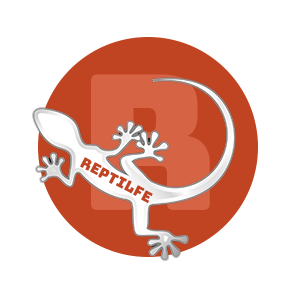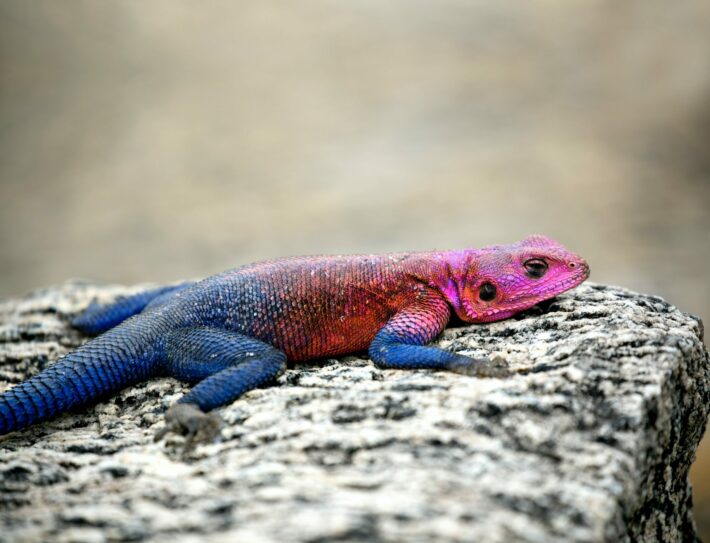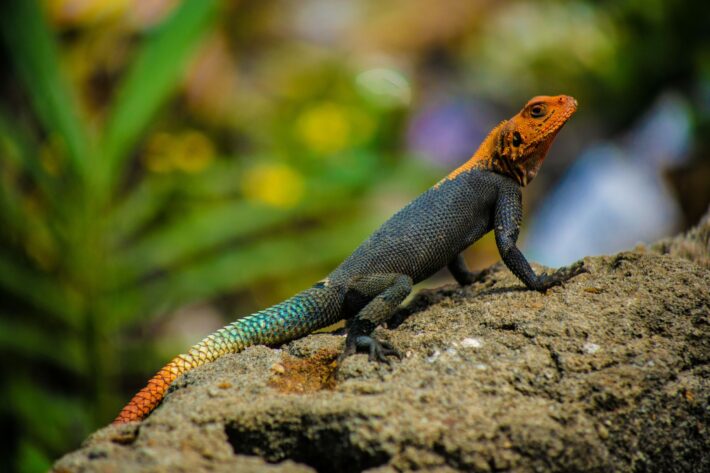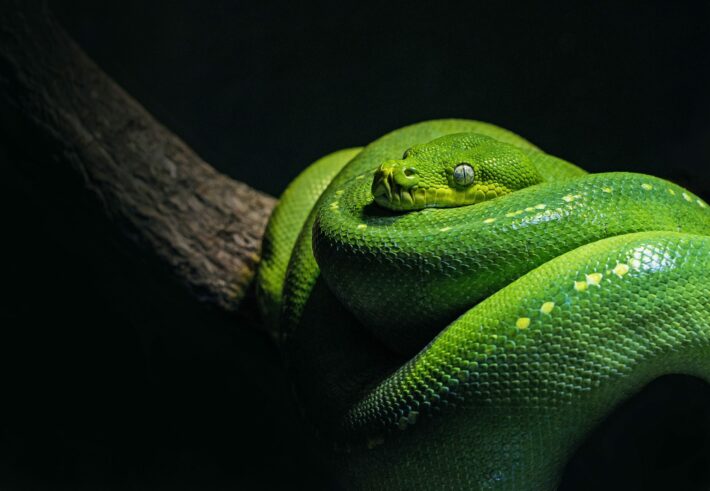Uncover the fascinating realm of reptiles as we delve into the captivating world of olfactory senses. If you’ve ever wondered which reptile reigns supreme when it comes to emitting a minimal odor, you’re in for a treat. Prepare to be amazed as we explore the remarkable adaptations and natural mechanisms that contribute to the least smelly reptile species.
From scaly wonders with remarkably efficient scent glands to reptilian marvels that have perfected their odor-masking techniques, we’ll embark on a scent-emotional journey that will leave you in awe. Get ready to learn about the reptilian kingdom’s olfactory champions and discover the surprising secrets behind their pleasantly odor-free existence.
https://www.youtube.com/watch?v=QBvSl3Ju3vw&pp=ygUUTGVhc3Qgc21lbGx5IHJlcHRpbGU%3D
Which reptile has the least offensive odor?
When it comes to reptiles with the least offensive odor, the Corn Snake (Pantherophis guttatus) often takes the spotlight. These non-venomous snakes are renowned for their virtually scentless nature, making them a popular choice among reptile enthusiasts.
With proper husbandry and a clean enclosure, the Corn Snake’s minimal odor is a pleasant surprise for owners. Their docile temperament and low maintenance needs make them an ideal pet for those seeking a reptile companion without the worry of overwhelming scents. Embrace the charm of a Corn Snake, as you enjoy its captivating presence without the unwanted odors.
What reptile species is known for its lack of smell?
The Leopard Gecko (Eublepharis macularius) is a reptile species widely recognized for its lack of smell. These adorable and low-maintenance creatures possess scent glands that produce minimal odor.
Their efficient digestive system also contributes to their naturally scent-free nature. Leopard Geckos are a popular choice for reptile enthusiasts seeking a captivating companion that won’t overpower their living space with unwanted aromas. Experience the joy of owning a reptile that not only captivates with its unique appearance but also impresses with its minimal scent emission.
Are there reptiles that do not emit any odor?
Yes, there are reptiles that do not emit any noticeable odor. One such reptile is Ball Python (Python regius). These gentle snakes are known for their docile nature and lack of offensive scent. With proper care and husbandry, Ball Pythons can thrive without emitting any noticeable odor.
Their hypoallergenic properties and minimal scent make them a popular choice for reptile enthusiasts, especially those sensitive to strong smells. Experience the wonder of owning a reptile companion that adds beauty to your surroundings without any unwanted aromas.
Which reptile has the most pleasant scent?
When it comes to reptiles with a pleasant scent, the Blue-Tongued Skink (Tiliqua spp.) often tops the list. These charming lizards not only captivate with their vibrant appearance and blue tongue but also emit a unique, musky fragrance that many find appealing.
While it’s subjective, the Blue-Tongued Skink’s scent is often described as sweet or earthy. Their mild aroma, coupled with their sociable nature, makes them a delightful reptile to have as a pet. Discover the joy of owning a reptile that not only looks stunning but also smells pleasing.
What are the odorless reptile options as pets?
If you’re searching for odorless reptile options as pets, consider the Crested Gecko (Correlophus ciliatus). These charismatic creatures are not only known for their stunning appearance and ability to climb, but they also emit minimal scents. Their diet of fruit-based supplements and insects contributes to their naturally odorless nature.
With their docile temperament and low maintenance requirements, Crested Geckos are a popular choice for reptile enthusiasts seeking a pet that won’t overwhelm their living space with unwanted smells. Explore the enchanting world of Crested Geckos and enjoy the pleasures of owning an odorless reptile companion.
Can you recommend a reptile with minimal scent for sensitive individuals?
For sensitive individuals seeking a reptile companion with minimal scent, the Kenyan Sand Boa (Eryx colubrinus loveridgei) is an excellent choice. These small and fascinating snakes have a gentle nature and produce minimal odor.
With their sand-like appearance and low maintenance needs, Kenyan Sand Boas are an ideal reptile for individuals who prefer a pet that won’t trigger allergic reactions or overwhelm them with strong scents. Experience the joy of owning a captivating reptile that offers companionship without compromising your sensitivity to smells.
Which reptile species has the mildest natural scent?
When it comes to reptile species with the mildest natural scent, the Gargoyle Gecko (Rhacodactylus auriculatus) often takes the spotlight. These stunning geckos are known for their distinctive appearance and lack of strong odors.
Gargoyle Geckos emits a mild, musky scent that is usually well-tolerated by sensitive individuals. With their unique ability to regenerate lost tails and their ease of care, Gargoyle Geckos are an excellent choice for reptile enthusiasts seeking a captivating companion with a gentle and pleasant fragrance.
Are there specific reptiles suitable for odor-sensitive environments?
Absolutely! One reptile species suitable for odor-sensitive environments is the African Fat-Tailed Gecko (Hemitheconyx caudicinctus). These small geckos possess a gentle temperament and produce minimal scents. Their compact size and low maintenance requirements make them ideal for odor-sensitive environments, such as apartments or small living spaces.
African Fat-Tailed Geckos not only add a touch of beauty to your surroundings but also create a pleasant reptilian presence without overwhelming your space with strong aromas. Discover the wonders of owning a reptile that adapts effortlessly to odor-sensitive environments.
What reptiles are considered hypoallergenic in terms of smell?
In terms of smell, reptiles that are considered hypoallergenic include the Western Hognose Snake (Heterodon nasicus). These charming snakes are known for their upturned snouts and docile nature, but they also emit minimal scents. Western Hognose Snakes have become popular among individuals with allergies or sensitivities to strong smells.
With proper husbandry and regular cage maintenance, Western Hognose Snakes can thrive while maintaining a hypoallergenic environment. Embrace the joys of owning a captivating reptile companion that won’t trigger unwanted allergic reactions due to smell.
Are there reptiles that require minimal odor control measures?
Yes, some reptiles require minimal odor control measures. An excellent example is the Blue Iguana (Cyclura lewisi). These impressive reptiles possess a mild scent that can be managed with proper enclosure cleaning and hygiene practices.
By implementing regular maintenance and appropriate husbandry techniques, Blue Iguana owners can effectively control and minimize any potential odors. Experience the majesty of owning a Blue Iguana as a pet, while enjoying the minimal effort required to maintain an environment free from overpowering smells.
Which reptiles are commonly known for their lack of odor complaints?
Reptiles that are commonly known for their lack of odor complaints include the Madagascar Day Gecko (Phelsuma madagascariensis). These vibrant and active geckos emit minimal scent, making them an excellent choice for individuals who are sensitive to strong odors.
With their delightful chirping sounds and their ability to thrive in smaller enclosures, Madagascar Day Geckos offer reptile enthusiasts a pet option that captivates without causing any unwanted smell-related concerns. Discover the beauty and scent-free presence of a Madagascar Day Gecko as you immerse yourself in the world of these enchanting reptiles.
What are some odor-free reptile options for reptile enthusiasts?
Reptile enthusiasts looking for odor-free options can consider the Green Anole (Anolis carolinensis). These small and active lizards are known for their lively nature and lack of noticeable odor.
With proper care and clean habitat, Green Anoles can thrive without producing any overpowering scents. Their ease of care, fascinating color-changing abilities, and ability to adapt to various environments make them an appealing choice for reptile enthusiasts seeking an odor-free reptile companion.
This table presents a selection of odor-free reptile options for reptile enthusiasts.
| Reptile Species | Size | Special Characteristics |
|---|---|---|
| Leopard Gecko | Small to medium | Nocturnal, unique morphs and patterns |
| African Fat-Tailed Gecko | Small to medium | Mild temperament, tail-waving behavior |
| Crested Gecko | Small to medium | Ability to climb vertical surfaces, varied color patterns |
| Blue Iguana | Medium to large | Vibrant blue coloration, herbivorous diet |
| Madagascar Day Gecko | Small to medium | Bright green coloration, vocal chirping sounds |
Are there certain reptile breeds or variations that have naturally low scent levels?
Yes, certain reptile breeds or variations have naturally low scent levels. One example is the Rosy Boa (Lichanura trivirgata), a non-venomous snake that emits a minimal odor. With their gentle disposition and compact size, Rosy Boas are an excellent choice for reptile enthusiasts seeking a pet snake with low scent levels.
By ensuring proper habitat cleanliness and providing a suitable diet, Rosy Boa owners can enjoy the presence of these captivating reptiles without being overwhelmed by unwanted smells.
Can you suggest reptiles that are least likely to produce unpleasant odors?
Certainly! One reptile that is least likely to produce unpleasant odors is the Bearded Dragon (Pogona vitticeps). These charismatic lizards have a mild and often unnoticeable scent, making them an ideal choice for individuals who prefer to avoid unpleasant odors.
With their friendly demeanor and relatively simple care requirements, Bearded Dragons are popular reptile pets that offer a captivating presence without the worry of overwhelming smells. Experience the joy of owning a reptile companion that adds vibrancy to your life without any unpleasant aromas.
What are the best reptiles to consider if you are looking for a pet with minimal scent?
If you are looking for a pet reptile with minimal scent, the Kenyan Sand Boa (Eryx colubrinus Loveridge) and the Ball Python (Python regius) are two excellent options to consider. Both species are known for their docile nature and produce a minimal odor when kept in a clean enclosure with proper husbandry.
These snakes are suitable for individuals who prefer reptile companions with minimal scent. Explore the world of Kenyan Sand Boas and Ball Pythons to find the perfect reptile companion that brings joy to your life without overwhelming your senses with unwanted smells.
In general
Exploring the world of odorless reptiles unveils a fascinating array of captivating creatures that can be perfect companions for reptile enthusiasts and individuals with sensitivities to strong smells. From the mesmerizing Leopard Gecko to the docile African Fat-Tailed Gecko, these reptiles offer a delightful presence without overwhelming the living space with offensive odors.
The Crested Gecko’s ability to climb and the vibrant Blue Iguana’s striking appearance add to the allure of owning an odor-free reptile. Meanwhile, the Madagascar Day Gecko’s unique vocalizations create a captivating ambiance. By understanding and appreciating the odor-free reptile options available, individuals can experience the joy of reptile ownership without compromising their olfactory preferences.







